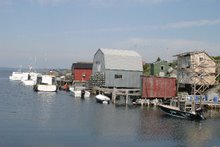WASHINGTON - A massive cleanup plan to restore the Great Lakes for future generations needs to be a priority in Congress this year, lawmakers and environmental activists said Wednesday. Members of Congress representing Great Lakes states outlined a $20 billion plan to improve water quality, restore fish and wildlife around the lakes and guard against invasive species that could inflict economic pain on the region.
The Great Lakes provide drinking water to about 40 million people and represent about 20 percent of the world‘s supply of fresh water. The waters are key to the region‘s tourist economy and industrial base.
The House bill is b, , ), D-Ill., , , ), R-Gr, , ), D-Mich., , , ), R-Ohio.
The proposal would help implement a Great Lakes restoration plan issued in December 2005 and based on suggestions from a broad array of lawmakers, environmentalists and regional activists.
President Bush ‘s budget proposal includes $7.6 million to complete an electronic barrier to target the Asian carp, which emerged from Southern fish farms in the early 1990s and has been making its way up the Mississippi River.
Congress approved a measure last year to reauthorize up to $16 million a year for grants to restore fish and wildlife habitats in the lakes. Lawmakers noted that Congress has supported large programs to restore the Florida Everglades in the past and must not shortchange the Great Lakes.
A large portion of the funding could come from a state loan program that helps communities improve their wastewater infrastructure. But supporters of the Great Lakes plan said a restoration plan would pay dividends in future years.
Monday, March 12, 2007
Subscribe to:
Post Comments (Atom)

1 comment:
I think this plan would be a great step forward for the US, if this plan really takes place and improve water qualities for the Great Lakes, and restore fish and wildlife habitat that would be wonderful, for both the US and Canada. It many also give the Canadian government the initiative to put some money into improving our lakes and oceans, or maybe even into management of some of the depleting fish stocks in Canadian water.
Post a Comment